AWS Certified Solution Architect Associate







AWS Certified Solution Architect Associate Course
The AWS Certified Solutions Architect – Associate course is designed to equip learners with the skills and knowledge required to design robust, scalable, and cost-efficient systems on the AWS cloud platform. This certification demonstrates an individual’s ability to build well-architected solutions using core AWS services while aligning with industry best practices and the principles of the AWS Well-Architected Framework.
For those seeking the best AWS Solutions Architect Associate training in Vadodara, this course offers the perfect blend of theoretical learning and hands-on experience. It covers key AWS services such as EC2, S3, RDS, VPC, and Lambda, as well as strategies for implementing secure and fault-tolerant cloud infrastructure.
This AWS Solutions Architect Associate certification course in Vadodara also emphasizes optimizing system performance, managing costs efficiently, and ensuring high availability and reliability across cloud environments. Learners will gain real-world skills through practical labs, case studies, and architectural best practices.
Ideal for IT professionals, system architects, and developers, this program prepares students to confidently take on cloud architecture roles and pass the official AWS exam. By enrolling in one of the leading AWS Solutions Architect coaching classes in Vadodara, students enhance their career prospects in cloud computing and DevOps.
What will I learn?
- Understand architectural design principles and methodologies for building cloud solutions.
- Design and deploy highly available, fault-tolerant, and scalable architectures on AWS.
- Implement security measures and compliance standards in AWS environments.
- Optimize AWS infrastructure for performance, cost, and scalability.
- Design and manage hybrid architectures for seamless integration with on-premises environments.
- Implement migration strategies for migrating applications and workloads to AWS.
Requirements
- Basic understanding of cloud computing concepts and services.
- Experience with architectural design principles and best practices
AWS Certified Solutions Architect - Associate Course Content
- Introduction to AWS
- Overview of AWS services and its global infrastructure
- Understanding the AWS Shared Responsibility Model
- Overview of AWS Free Tier and AWS Billing
- Identity and Access Management (IAM)
- Managing IAM users, groups, and roles
- Configuring permissions and access policies
- Best practices for IAM security
- Compute Services
- Overview of Amazon EC2 (Elastic Compute Cloud)
- Launching and managing EC2 instances
- Understanding EC2 instance types, pricing, and purchasing options
- Auto Scaling and Load Balancing concepts and configurations
- Storage Services
- Introduction to Amazon S3 (Simple Storage Service)
- Managing S3 buckets, objects, and permissions
- Understanding S3 storage classes and lifecycle policies
- Overview of Amazon EBS (Elastic Block Store) and Amazon EFS (Elastic File System)
- Networking Services
- Configuring Amazon VPC (Virtual Private Cloud)
- Understanding VPC components: subnets, route tables, internet gateways, NAT gateways, etc.
- VPC Peering and VPN connections
- Overview of AWS Direct Connect
- Database Services
- Introduction to Amazon RDS (Relational Database Service)
- Launching and managing RDS database instances
- Understanding RDS Multi-AZ deployments and Read Replicas
- Overview of Amazon DynamoDB and Amazon Aurora
- Security and Compliance
- Configuring network security using Security Groups and NACLs
- Data encryption using AWS KMS (Key Management Service)
- Overview of AWS Security Hub, AWS Inspector, and AWS Config
- Monitoring and Logging
- Overview of Amazon CloudWatch
- Monitoring EC2 instances, EBS volumes, and other AWS resources
- Setting up CloudWatch alarms and notifications
- Introduction to AWS CloudTrail and AWS Config for audit logging and compliance
- High Availability and Disaster Recovery:
- Designing fault-tolerant and highly available architectures
- Implementing multi-region redundancy and failover strategies
- Backup and restore options for AWS services
- Scalability and Performance Optimization
- Designing scalable and performant architectures
- Implementing caching and content delivery using Amazon CloudFront
- Overview of AWS Lambda and AWS Elastic Beanstalk for serverless and managed services
- Deployment and Management Tools
- Overview of AWS CloudFormation for infrastructure as code (IaC)
- Introduction to AWS CLI (Command Line Interface) and AWS SDKs (Software Development Kits)
- Understanding AWS Elastic Beanstalk and AWS OpsWorks for application deployment and management
- Case Studies and Best Practices
- Real-world use cases and architectural patterns
- Best practices for designing and deploying applications on AWS
- Review of sample questions and exam preparation tips
- Creating and Configuring EC2 Instances
- Launch EC2 instances using different instance types and Amazon Machine Images (AMIs).
- Configure security groups, key pairs, and IAM roles for EC2 instances.
- Access EC2 instances using SSH/RDP and perform basic system administration tasks.
- Working with Amazon S3
- Create S3 buckets and upload objects using the AWS Management Console and AWS CLI.
- Configure bucket policies and access control using IAM permissions.
- Enable versioning and lifecycle policies for S3 objects.
- Configuring VPC Networking
- Create custom VPCs with multiple subnets, route tables, and internet gateways.
- Configure VPC peering and VPN connections between VPCs.
- Implement network ACLs and security groups to control traffic flow.
- Implementing High Availability and Fault Tolerance
- Configure EC2 Auto Scaling groups to automatically scale instances based on demand.
- Set up Elastic Load Balancers (ELB) to distribute traffic across multiple instances.
- Configure Multi-AZ deployments for RDS instances to achieve high availability.
- Database Deployment and Management
- Deploy RDS database instances (MySQL, PostgreSQL, or other engines) using the AWS Management Console.
- Configure database backups, snapshots, and automated backups retention policies.
- Create read replicas for RDS instances to offload read traffic.
- Implementing Security Best Practices
- Configure IAM policies and roles with least privilege access for users and applications.
- Enable encryption at rest and in transit for S3 buckets, EBS volumes, and RDS databases.
- Implement AWS WAF and AWS Shield for DDoS protection and web application firewall.
- Monitoring and Logging
- Set up Amazon CloudWatch alarms to monitor EC2 instances, RDS databases, and other AWS resources.
- Create custom metrics and dashboards in CloudWatch for performance monitoring.
- Configure CloudTrail for logging API calls and use AWS Config for resource inventory and compliance.
- Scalability and Performance Optimization
- Configure Amazon CloudFront distributions for content delivery and caching.
- Use AWS Lambda for serverless computing and trigger functions based on events.
- Optimize performance using Amazon Route 53 for DNS routing and latency-based routing.
- Infrastructure as Code (IaC)
- Create AWS CloudFormation templates to provision and manage AWS resources.
- Use AWS CLI or SDKs to automate resource deployment and configuration.
- Validate and troubleshoot CloudFormation stacks and rollback changes if necessary.
- Architectural Design and Optimization
- Design and implement scalable, cost-effective architectures based on AWS best practices.
- Optimize costs by analyzing usage patterns and leveraging AWS pricing models (e.g., Reserved Instances, Spot Instances).
- Perform architectural reviews and recommend improvements for security, reliability, and performance.
Get in touch
400+ Global Employment Partners

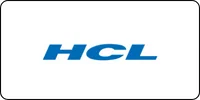
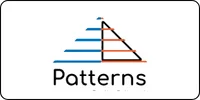

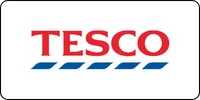



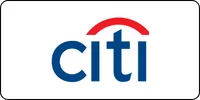




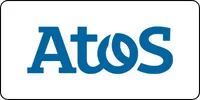
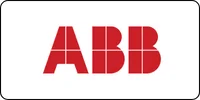
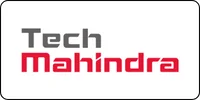
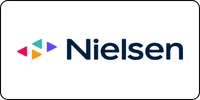







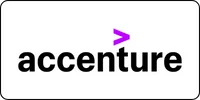


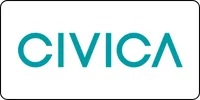

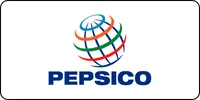

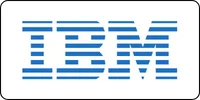
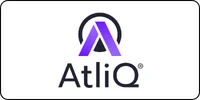
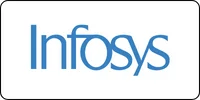

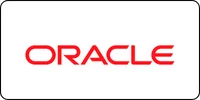


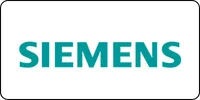
Why Choose AWS Solutions Architect Associate Certification Course from Bright Computer Education?
AWS Solutions Architecture courses are designed to provide a thorough, hands-on, and certification-focused learning experience for individuals aiming to design scalable and secure cloud solutions. Whether you’re planning to Learn AWS Solutions Architecture in Vadodara, beginning with AWS Solutions Architect for beginners in Vadodara, or advancing your skills through Advanced AWS Solutions Architect training in Vadodara, these programs are structured to support learners at every stage. The curriculum includes topics like cloud infrastructure design, high availability, cost optimization, security, and AWS service integration. With real-time labs, expert mentorship, and scenario-based projects, students are well-prepared to clear the AWS Solutions Architect certification and handle real-world cloud architecture challenges.

Designed Curriculum
Our curriculum covers everything from basic to advanced topics. Topics include variables, data types, control structures, functions, OOP, STL, and more.

Hands-on Learning
Dive into practical exercises and coding projects that reinforce learning and help you build real-world applications.

Experienced Instructors
Learn from industry experts with years of experience in C programming and software development.
Flexible Learning
Choose from flexible scheduling options, including self-paced learning or live virtual classes to fit your busy lifestyle.
Career Development
Gain valuable skills sought after by employers in various industries, from software development to embedded systems and beyond.
Interactive Learning
Engage with fellow learners and instructors through live Q&A sessions, discussion forums, and collaborative coding exercises.
Diverse Career Opportunities in AWS Solutions Architect Associate: Exploring Paths in India's Technology Sector
In India, proficiency in C programming can open up various career opportunities in the technology sector. C programming offers Different opportunities in reputed organizations worldwide such as Facebook, Google, and more. These companies recognize the value of skilled C programmers and compensate them handsomely for their contributions. While salary structures vary across organizations and experience levels, the average annual salary for a C programmer in India stands at 470,000 INR, while in the USA, it reaches $74,077.
Frequently Asked Questions
Recently View Courses
Course Details Curriculum Placement FAQ’s AWS Certified Solution Architect Associate Course The AWS Certified Solutions...
Read MoreCourse Details Curriculum Placement FAQ’s AWS Certified Cloud Practitioner Course The AWS Certified Cloud Practitioner training...
Read MoreCourse Details Curriculum Placement FAQ’s RHCE-Red Hat Certified Engineer Training Course Looking to take...
Read More
